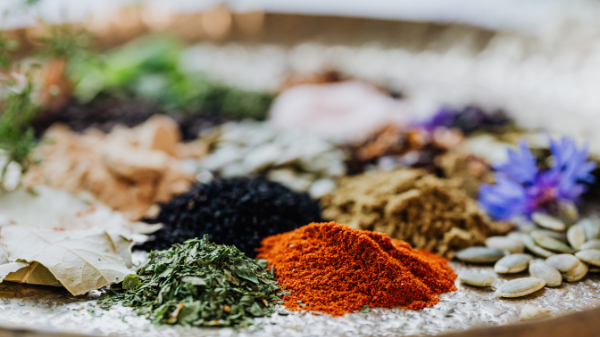Spices are an essential enhancement in a wide array of cuisines across Asia. A case in point is curry which is a staple in southeast Asia. The key ingredients to producing a sumptuous curry dish are spices. With a distinctively alluring aroma and flavour, it also provides various health benefits deemed helpful in relieving and reducing susceptibility to illnesses, such as arthritis and even cancer.
Here are 10 types of spices reputed for the health benefits that they bring:
Cinnamon
Cinnamon spice can be found within the bark of several types of trees. This aromatic spice is often used in a variety of sweet and savoury dishes, including breakfast food, such as cereals and tea. It’s been described as helpful to keep away diabetes as it contains properties that promote balanced blood sugar levels by releasing antioxidant properties which reduce the body’s insulin response.
Turmeric
This bright yellow and earthy-flavoured spice often provides an appetising colour to curries and it has also found its way into healthy juices. It contains an active component, called curcumin, found to have the potential to reduce cholesterol in the body and prevent heart ailments, Alzheimer’s and cancer because of its anti-oxidant and anti-inflammatory properties.
Ginger
An aromatic, sweet and spicy root crop that adds a distinctive flavour to any dish, this spice type is a favourite staple in many Asian cuisines. It contains anti-inflammatory properties that relieve a variety of discomforts and pains such as menstrual cramps, migraines, arthritis, nausea and motion sickness. It can an essential element in a dish, sliced fresh and placed in a hot beverage, and even grounded so its juice can be extracted.
Chilli Pepper
There is a wide variety of chilli peppers, all ranked at different levels in the scoville scale. Red chillies are known for their abundant vitamin C, A, B6 and K1 content, as well as potassium and copper. Intriguingly, chilli peppers are also known for their curative properties, specifically relieving external pains as the burning sensation induced by its application is commonly attributed to easing pains. Consuming chillies frequently desensitises the body’s pain receptors over time and relieves the discomfort of acid reflux. A word of caution: excessive ingestion of chilli peppers can cause intestinal problems, notably painful diarrhoea and abdominal pains.
Garlic
A staple ingredient in any dish from East to West, and a close relative to onions and shallots, garlic is well reputed for an array of health benefits that it brings. It is highly nutritious and is low in calories comprised of vitamins and minerals that boost the immune system, production of red blood cells, and management of nerve and muscle functions. Garlic is usually chopped in small pieces, but it can also be eaten whole, turned into oil and even turned into pills and taken as health supplements. This spice type is said to bolster one’s immunity from common colds and in managing anemia.
Cumin
This earthy, aromatic and nutty spice is a staple in curries and soups. It provides ample protein and dietary fibre as well as vitamins and minerals essential for a healthy diet. It has been found to increase the activity of digestive enzymes in the body, promotes weight loss and reduces the harmful symptoms and long-term effects of diabetes.
Coriander
Also known as cilantro, coriander adds vibrancy to a dish’s aesthetics and flavour, as well as reduces down blood sugar levels and helps manage obesity. It contains compounds that promote antioxidant properties that boost immunity and anti-inflammatory qualities that improve memory and other neurological functions.
Fennel
Is an aromatic anise-flavoured flowering plant that is often added to salads, stews, sausages and of course, curries. Its seeds are rich in protein, dietary fibre, vitamin B and other minerals such as calcium, iron and magnesium. It serves as a good source of energy and it contains anti-bacterial and anti-inflammatory properties. It can be eaten as it is or coated in sugar. More often, though, it is grounded into powder and added to a dish.
Mustard Seeds
This mellow spice, which comes with a subtle hint of sweetness, highlights the complex flavours of curries and other dishes. But more importantly, it also stops the proliferation of harmful bacteria. Aside from being used as a spice to dishes, mustard seeds can be turned into oil which is reputed for its great benefits to the skin and hair. A drop or two of mustard oil on face masks and hair treatments or mixed into lotions can help resolve issues with wrinkles, hair growth and cracked skin.
Curry Leaves
Curry leaves have been found to contain several compounds that engender anti-oxidants that suppress oxidative stress and address issues commonly caused by chronic diseases, including Alzheimer’s. Curry powder should not to be mistaken as the grounded form of curry leaves, though it does contain grounded curry leaves among other spices. Oil extracted from curry leaves helps in memory retention and in protecting the body’s stomach lining from getting damaged, especially when consuming strong medication.
See Also: //www.gafencushop.com/chaat-indian-street-food/













